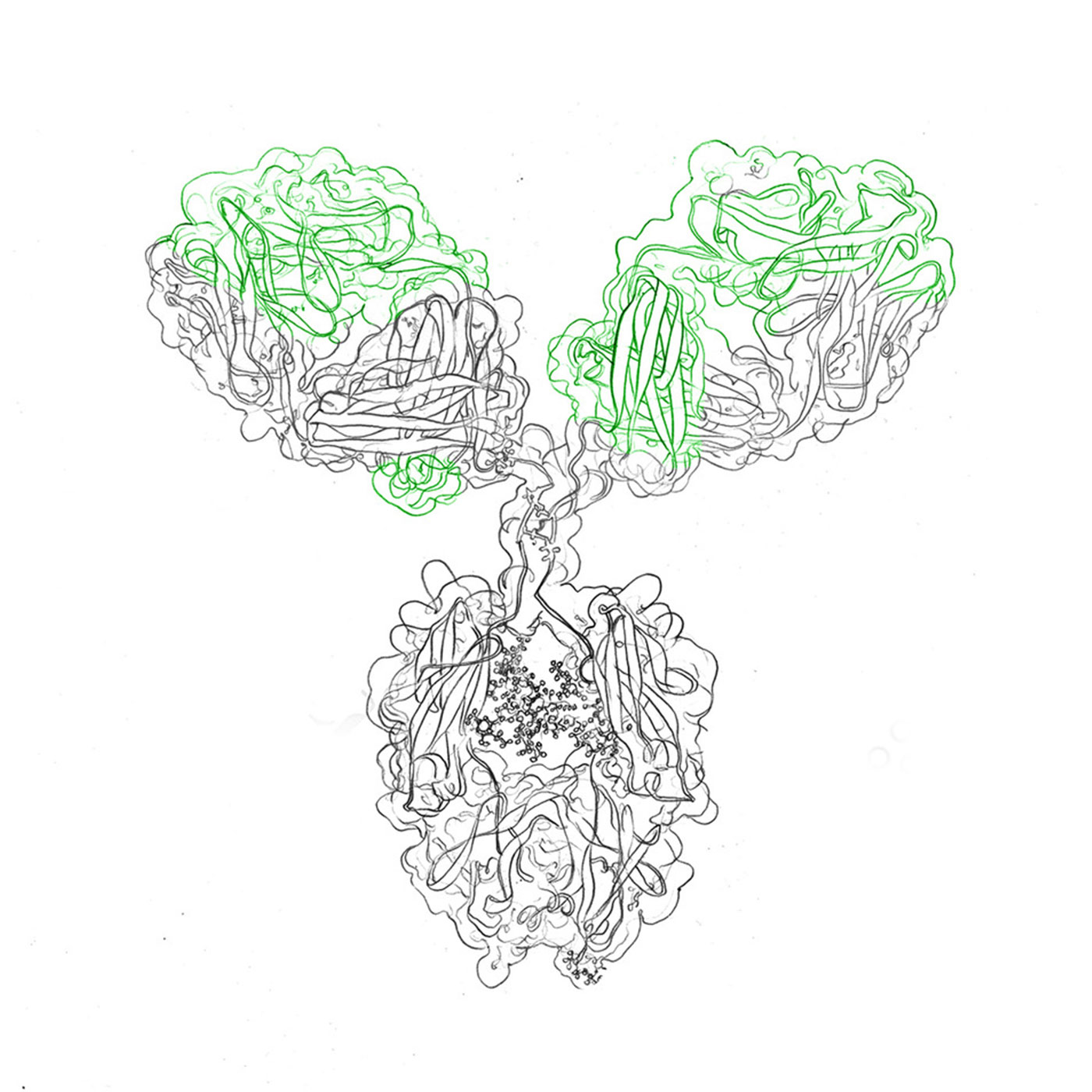Custom recombinant antibody production
We are a leading service provider for custom recombinant antibody production. Get in contact!
IgG antibodies, also known as Immunoglobulin G, play a pivotal role in our immune system’s defense mechanisms. Antibodies in general are extremely fascinating entities, able to detect foreign substances and intruders with high precision. This also enables them to be powerful tools in the research and medicine, being eligible for various immunological assays and medical treatments, e.g. by the production of recombinant antibodies.
Among all the different types of antibodies, IgGs stand out for various reasons – here are five of them.
IgG antibodies, scientifically referred to as Immunoglobulin G, are the primary and most abundant antibody class found within our immune system. These antibodies play a pivotal role in our body’s defense mechanisms, combating a wide range of pathogens and foreign invaders. To grasp their significance, it’s essential to understand both the diversity within IgG antibodies and how they compare to other antibody isotypes.
IgG antibodies differ significantly from other types of antibodies in terms of their structure and functions, including:
Subscribe to our Newsletter
Get all the latest updates, and learn about our advancements in antibody production.
Subscribe now
IgG antibodies are further categorized into distinct classes, each IgG subclass having its unique properties and functions:
Immunoglobulin G (IgG) possesses a remarkable ability to target a multitude of antigens. When our body encounters pathogens or foreign invaders, B cells orchestrate the production of highly specific IgG antibodies tailored to combat these threats. These antibodies are designed for neutralizing pathogens and kick-starting our immune response. IgG’s adaptability knows no bounds, extending its protective reach from the respiratory tract to systemic infections.
To illustrate this, here are a few examples of infections that result in the production of IgG:

Immunoglobulin G (IgG) blood tests serve as highly versatile diagnostic tools within the field of serology. These laboratory tests can detect immunoglobulin levels, offering comprehensive insights into a patient’s immune status and overall health.
Immunoglobulin tests are instrumental in assessing a wide range of health-related factors. They aid in the evaluation of post-vaccination immunity, monitoring treatment responses, and diagnosing conditions related to IgG deficiency, infections, or allergic reactions. Furthermore, these tests can differentiate between IgG subtypes, such as IgG1, and assess monomeric IgG levels. The detailed information provided by these test results empowers healthcare providers to make informed decisions and tailor treatment plans to each patient’s specific needs.
IgG antibodies are integral to our immune system’s defense, and a deficiency in these antibodies can have far-reaching health implications. Such a deficiency can lead to heightened susceptibility to infections, as IgG deficiency can impair the body’s ability to neutralize pathogens, leaving it vulnerable to various health issues.
IgG deficiencies can impact the body’s defense mechanisms in sinus cavities, mucous membranes, and the intestinal tract. Healthcare providers play a crucial role in diagnosing and managing IgG deficiencies. Addressing this condition may involve treatments that boost IgG levels, supporting other components of the immune system, but also the daily intake of antibiotics.1
IgG antibodies have emerged as indispensable tools in the field of biopharmaceuticals, owing to their versatility and applicability. Their widespread use encompasses diagnostic and therapeutic purposes. Monoclonal IgG antibodies, produced through recombinant DNA technology, have revolutionized the development of diagnostics and treatments for various conditions, such as immunodeficiencies, autoimmune diseases and various cancer types.
Read more on the applications of recombinant DNA technology
Intense research has been conducted on the intricate mechanism between various receptors, antigen-binding sites, B and T cells. These interactions have significant implications for diseases like rheumatoid arthritis, as well as in the development of therapeutic strategies against infectious agents such as SARS-CoV-2. Thus, IgG antibodies are pivotal players in life sciences and biopharma, showcasing their importance in the fields of immunology, enzymatic research, and humoral immune response.
Notably, companies like evitria specialize in recombinant antibody expression services for diagnostic and therapeutic applications, further emphasizing the growing significance of IgG antibodies in biopharmaceutical advancements.
We are a leading service provider for custom recombinant antibody production. Get in contact!

IgG antibodies indicate that your immune system has encountered and responded to specific antigens, such as pathogens or foreign substances. They play a crucial role in long-term immunity, as they are produced after an initial exposure to an antigen and can provide protection upon subsequent encounters.
A high IgG level may indicate a previous or ongoing infection with various pathogens, including viruses, bacteria, fungi, or parasites. The specific pathogen causing the high IgG level would need to be determined through additional tests or clinical evaluation.
A high IgG antibody level suggests that your immune system has mounted a strong response to a particular antigen, either due to a recent infection, vaccination, or an ongoing immune reaction. It often signifies immunity and can help protect against future encounters with the same antigen. However, the interpretation of IgG levels should consider the specific context and clinical findings.